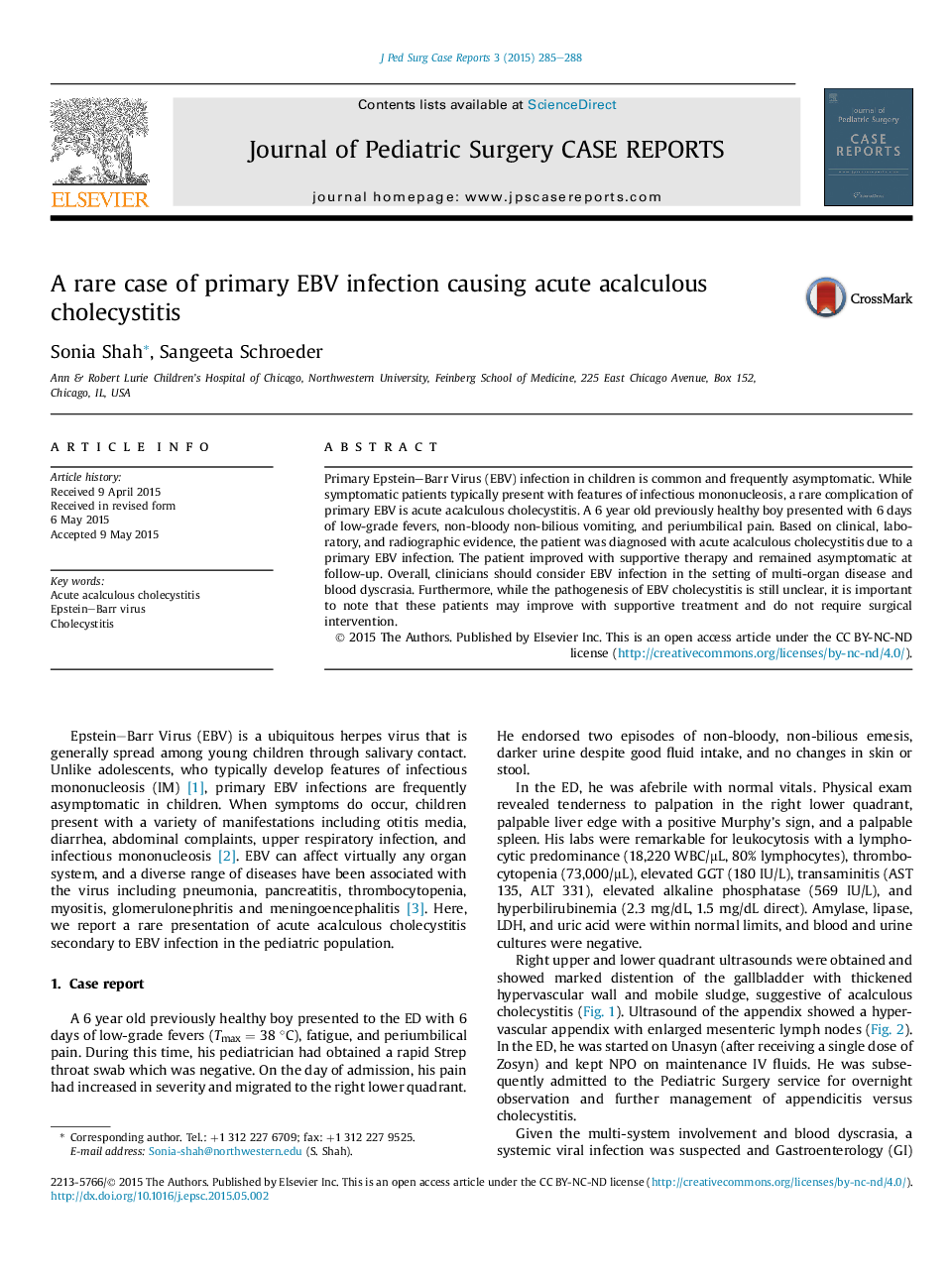| Article ID | Journal | Published Year | Pages | File Type |
|---|---|---|---|---|
| 4161371 | Journal of Pediatric Surgery Case Reports | 2015 | 4 Pages |
•Acute acalculous cholecystitis (ACC) is a rare complication of primary EBV infection in the pediatric population.•Clinicians should consider EBV infection in the setting of multi-organ disease with abdominal pain and blood dyscrasia.•Most cases of EBV-associated ACC can be treated with medical management.•The role of antibiotics following the diagnosis of ACC is unclear.
Primary Epstein–Barr Virus (EBV) infection in children is common and frequently asymptomatic. While symptomatic patients typically present with features of infectious mononucleosis, a rare complication of primary EBV is acute acalculous cholecystitis. A 6 year old previously healthy boy presented with 6 days of low-grade fevers, non-bloody non-bilious vomiting, and periumbilical pain. Based on clinical, laboratory, and radiographic evidence, the patient was diagnosed with acute acalculous cholecystitis due to a primary EBV infection. The patient improved with supportive therapy and remained asymptomatic at follow-up. Overall, clinicians should consider EBV infection in the setting of multi-organ disease and blood dyscrasia. Furthermore, while the pathogenesis of EBV cholecystitis is still unclear, it is important to note that these patients may improve with supportive treatment and do not require surgical intervention.
